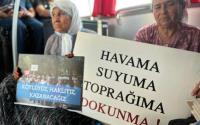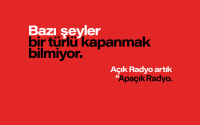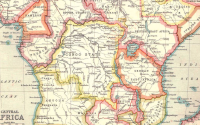Common Dreams / Published on Thursday, February 8, 2007 by ReutersParisa Hafezi
Iran's top authority, Supreme Leader Ayatollah Ali Khamenei, said on Thursday the Islamic Republic would target U.S. interests around the world if it came under attack over its disputed nuclear program.
His comments were accompanied by an Iranian naval commander's statement that the Revolutionary Guards had test fired missiles that could sink "big warships" in the Gulf, the waterway where a second U.S. aircraft carrier is now heading.
Iran and the United States are locked in a dispute over Tehran's nuclear program, which Washington says is being used to build atomic bombs, a charge Tehran denies.
The United States has stepped up pressure on Iran to heed a U.N. demand to halt the most sensitive part of Iran's atomic work -- uranium enrichment. Iran has refused to take that step.
"The enemies know well that any aggression will lead to a reaction from all sides in the Iranian nation on the aggressors and their interests around the world," Khamenei was quoted as saying by state television.
Washington says it wants diplomacy to end the nuclear standoff but has not ruled out military action if that fails.
"We believe that no one will make such an unwise and wrong move (to attack Iran) that would endanger their country and interests," Khamenei said.
"Some say that the U.S. president is not the type who acts based on calculations or thinks about the consequences of his action. But even these people can be brought to their senses."
President Bush has said he has no intention of invading Iran, despite pledging to ratchet up pressure.
But Iran says it plans to press ahead with its atomic plans. Diplomats say it has set up a new batch of more than 300 centrifuges that can enrich uranium for fuel or material for warheads. It already runs 350 experimental centrifuges.
TALKS WITH WESTERN OFFICIALS
Iran says it will celebrate its atomic achievements as it marks the anniversary of the 1979 Islamic Revolution on Sunday, prompting speculation that it could announce progress in expanding enrichment work at its underground Natanz facility.
"What we mean by 'nuclear celebrations' is that we will show that the Iranian nation is supporting the nuclear issue," Iran's chief nuclear negotiator, Ali Larijani, was quoted by the official daily Iran as saying.
Larijani said on Wednesday he planned talks with Western officials on the sidelines of a conference in Germany, the first such contacts since U.N. sanctions were imposed in December.
The February 9-11 security conference in Munich is expected to be attended by German Chancellor Angela Merkel, Russian President Vladimir Putin, European Union foreign policy chief Javier Solana and Defense Secretary Robert Gates.
Asked about a possible meeting with Larijani, Solana said: "For the moment I have not agreed on anything as I don't know what time I'll be there and what time he will be there."
State Department spokesman Sean McCormack said U.S. officials had no plans to meet Larijani. The United States says Iran must halt enrichment before talks can start or sanctions can be lifted.
The U.N. sanctions block the transfer of sensitive nuclear material and know-how to Iran's nuclear program. The resolution also gives Iran until February 21 to suspend enrichment.
Amid mounting tension with the United States, Iran staged two days of war-games on Wednesday and Thursday involving air and naval units of the ideologically driven Revolutionary Guards.
Senior Guards naval commander Ali Fadavi was quoted by the state broadcaster's Web site as saying that a missile tested on Thursday could sink "all kinds of big warships", and had a range extending to all parts of the Gulf and the Sea of Oman, and to the northern Indian Ocean.






